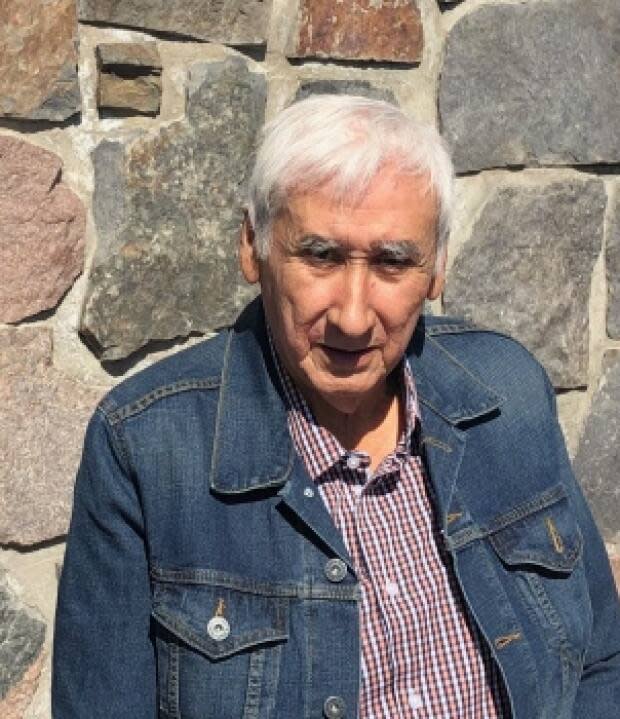CBC North searching for Denesųłıné Yatie host after 9 months off the air

For nine months, Denesųłıné Yatie, the CBC's weekday Chipewyan language radio program, has been off the air.
That has Fort Resolution elder Robert Sayine asking when the language will grace the airwaves again.
Denesųłıné, or Chipewyan, is one of the N.W.T.'s 11 official languages. It's spoken across Alberta, Saskatchewan, Manitoba and N.W.T. and had more than 13,000 speakers according to the 2016 census.

"I'm just concerned that nothing is happening with that program and I really think it's a good program," Sayine said.
He said when the programming is in Denesųłıné, elders understand the radio news more deeply. It also makes it possible for the youth and even adults to hear the language regularly.
"I always give good credit to CBC that this program is keeping our language alive, not just for the elders: he middle-aged people that are not so fluent but they can get across with the language [and] also, with the younger generations coming up," he said.
"We've gotta keep our language alive."
Sayine said since Denesųłıné Yatie went off air before Christmas last year, speakers including unilingual elders haven't been able to hear the news in their language.
"When you do [the news] in their language, they fully understand what it is," he said.
Sayine said that's why the program, which has run for more than 30 years, needs to be restored as soon as possible.
He said he's contacted CBC North often and even offered to help select a candidate who can speak Denesųłıné.
Actively recruiting for 9 months
CBC North managing editor Garrett Hinchey said the recruitment process began when Denesųłıné Yatie host Marlene Grooms left the CBC late last year.
"We have been actively recruiting without success, unfortunately, since she's left."

Hinchey said he recognizes the temporary loss of this programming has been "very disruptive for the communities in the south of the Northwest Territories [and] in northern Alberta and Saskatchewan.
"People are upset that we aren't on the air, and rightfully so. You know, this is part of our language offering. It's important to the people in the communities. It's important to the long-term health of the language that we have the show on the air," he said.
During recruitment, CBC has brought fewer than five candidates to the late stages of the hiring process, but because Denesųłıné speakers are in high demand, some have even been hired by other employers during the recruitment process.
"We're interested in working with anyone who can speak the language and has an interest in broadcast media. I do think some people look at CBC and CBC North and this idea of being a radio broadcaster and see it as something that's unattainable, and that's something that we have to fight, not just for this role, but for a lot of different roles."
'Elders depend on that show'
The program reaches people in the N.W.T. communities of Hay River and Fort Smith, and as far as Fort Chipewyan, Alta.
In communities like Ndilǫ and Dettah, where languages like Wiilideh Yati are spoken, or in the Tłı̨chǫ region, there are also people, especially elders, who understand Denesųłıné.
Sayine also approached Tu Nedhé-Wiilideh MLA Richard Edjericon with his concerns.
Edjericon wrote to CBC's headquarters and CBC North about the urgency of restoring the program for listeners.
"Our elders depend on that show and even elders in the old folks home or at the hospital. That's a means of communication and to listen to what's going on out there in the language."
Absence not permanent
Hinchey said CBC North has been running promos in English and Denesųłıné in communities with many speakers and reached out to community members.
"I don't want people to be concerned that this hiatus is something that is going to be permanent. It's not. It's solely based on the fact that we don't have somebody currently in the host's chair and so we are actively searching," he said.
The only requirement for the job is fluency in the language.
"Beyond that, all we're looking for is someone who's got a keen interest in learning the job, learning the CBC and is interested in a career in media," he said.
Hinchey said CBC has training available and will consider remote operators because several hosts already operate in locations like Inuvik and Edmonton.
"We're willing to teach the right person and the right person for me is someone who has some language skills and an aptitude for learning new skills and is really, really eager to do this."


